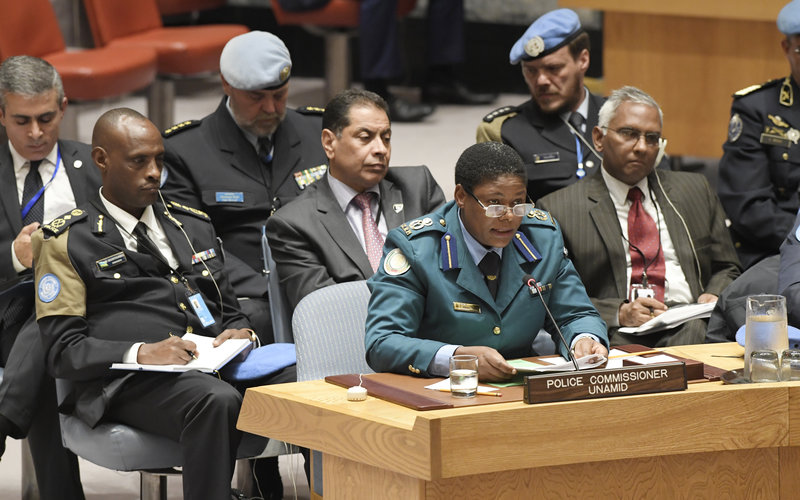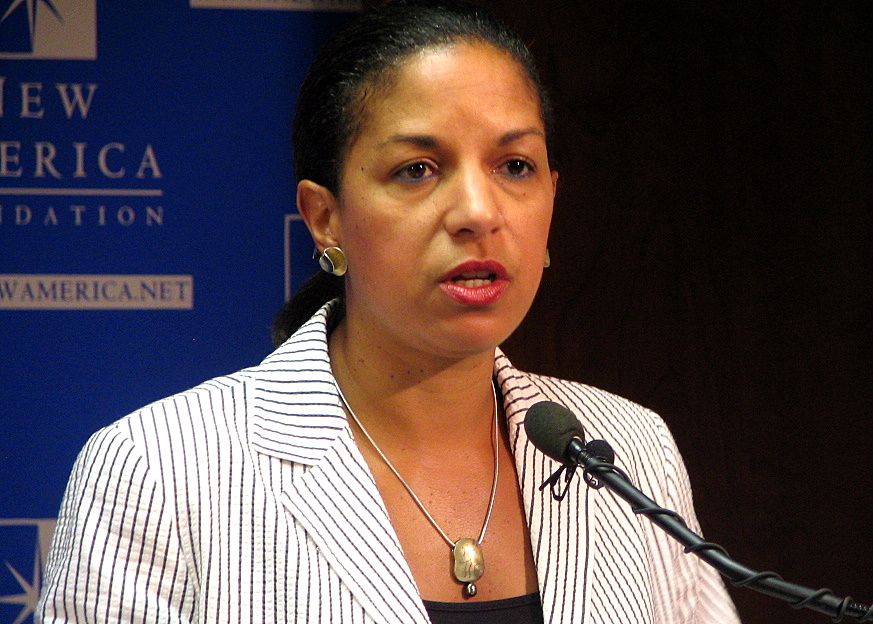

On November 6-10, the Police Division convened the 2017 UN police week. Heads of police components (HOPCs) in UN peacekeeping operations and special political missions came to New York for discussions, as well as briefings to the Special Committee on Peacekeeping Operations and the Security Council.
During the week, Heads of police components considered the recommendations of the Internal Review of the UN Peace and Security Architecture related to UN policing, the status of implementation of the Secretary-General’s reform plan on UN policing as outlined in S/2016/952, as well as Security Council resolution 2382 (2017).
On Friday, UN police week closed following a session on human rights in UN police activities. The closing remarks were delivered by Alexandre Zouev, Assistant Secretary-General for Rule of Law and Security Institutions, Bintou Keita, Assistant Secretary-General for Rule of Law and Security Institutions and UN Police Adviser Luis Carrilho.
On Thursday, United Nations Secretary-General António Guterres briefly met and took a photo with the Under-Secretary-General for Peacekeeping Operations, Jean-Pierre Lacroix, Assistant Secretary-General for Peacekeeping Operations, Bintou Keita, Assistant Secretary-General for Rule of Law and Security Institutions, Alexandre Zouev, UN Police Adviser Luis Carrilho and Heads of police components in UN peace operations. In his message, Secretary-General Guterres stressed that United Nations police save countless lives, heal community tensions. The Secretary‑General also called for more women in United Nations police command positions.
Earlier on the same day, the UNAMID Police Commissioner Priscilla Makotose, MONUSCO Police Commissioner Awale Abdounasir and MINUSCA Police Commissioner Roland Zamora briefed the Special Committee on Peacekeeping Operations (C-34) on transitioning, gender/electoral security and capacity development respectively.
Building on Security Council resolution 2382 (2017), Police Commissioners focused on Wednesday on how police can be more effective in conflict prevention, peacekeeping and peace sustainment. Heads of UN police components also discussed how to achieve gender-responsive policing. As of September 2017, 1,118 female police officers from 70 countries serve in peacekeeping operations and special political missions. They act as role models for gender equality, inspiring women and girls to advocate for their own rights and pursue careers in law enforcement.
On Tuesday, the discussions of heads of UN police components focused on partnerships, good practices and challenges of UN capacity-building. More than 11,000 United Nations police officers from 89 countries (as of September 2017), are mandated to assist host-States in reforming their police and other law enforcement institutions.
On Monday, the Security Council adopted resolution 2382 (2017), which supports operationalizing the Strategic Guidance Framework for International Police Peacekeeping. The resolution also recognized the important role that United Nations police components play in the protection of civilians, including in preventing and addressing sexual and gender‑based violence, and violations and abuses against children.
In his address to the Security Council, Under‑Secretary‑General for Peacekeeping Operations Jean‑Pierre Lacroix said the United Nations police played a continued vital role in bridging the Organization’s work from prevention and peacekeeping to peacebuilding and development. The Police Commissioner of the United Nations Mission for Justice Support in Haiti (MINUJUSTH), Brigardier General Georges-Pierre Monchotte, briefed the Security Council on good practices of reforming the Haiti National Police. The Police Commissioner of the United Nations Multidimensional Integrated Stabilization Mission in Mali (MINUSMA), Issoufou Yacouba briefed on strengthening the serious and organized crime capacities of the Malian security forces. Police Commissioner Priscilla Makotose of the African Union/United Nations Hybrid operation in Darfur (UNAMID) briefed the Security Council on gender responsive policing.
About UN News Service
- Web |
- More Posts(39)





